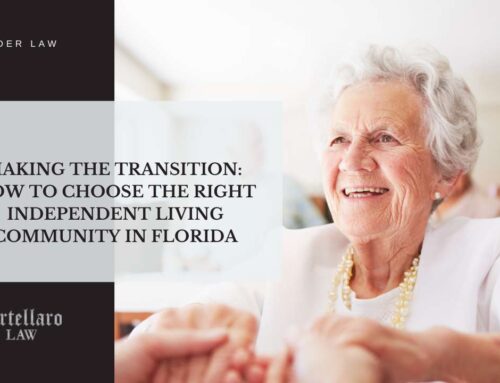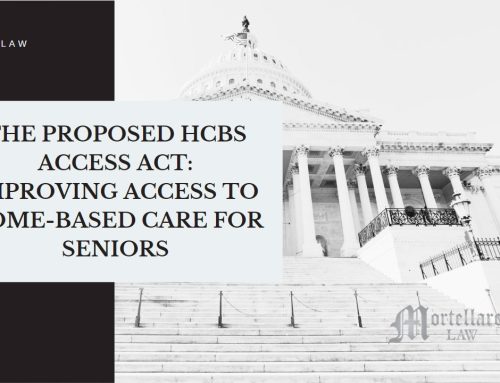Most people don’t envision themselves aging in a nursing home or needing assistance with simple tasks throughout the day. We’d all like to see ourselves as cognitively and physically competent until the end. Before making an important decision about elder care options for your aging parents, it’s important to fully consider the different options available, there is no one-size-fits-all approach.
It is well-known fact that Americans are living longer and longer. In 1960, Americans lived an average of 69.7 years, which increased by 2015 to an average of 79.4 years. By 2016, that figure is expected to increase by another 6.1 years.
As we attain graduated age – a goal and an accomplishment for many – our minds and bodies begin to decline. How can we provide support for our loved ones as they experience the effects of aging?
It’s important to consider the array of options available so you can determine the right level of care for your loved one. An experienced elder law attorney can help consider the level of need, preserve the independence that most of us would desire, all while considering important cost factors and helping to get government benefits to make the choice financially possible.
Living at Home / Independent Living / “Aging in Place”
76% of Americans ages 50 and older want to stay in their homes as they age. Commonly termed “aging in place” or “independent living,” this is by far the most appealing option. People who live in homes that were built without aging-in-place considerations may need to make home modifications, such as adding a zero-step landing or an easy-access bathtub. Individuals who live in bedrooms on the second floor may have a harder time staying in their homes as they age.
You may consider getting daytime or nursing help in case your loved one needs it, either now or in the future. Does your loved one need help with personal care, household care, preparing meals or managing money? If you know someone who can pop in throughout the day, they could assist. You may find volunteers, financial counselors, or geriatric care managers who can assist, particularly with the finances. In-home nursing care can be costly, although Medicare may pay for a home health aide.
Living with a Loved One
If your aging parent requires help that cannot be provided in their own home, you may want to consider if they can live with you, a sibling, or another family member who can help care for them. Of course, it may not be easy to provide the same lifestyle and social needs for your parent, who may end up leaving their community to stay with a family member. Keep in mind also that an aging adult may require transportation assistance, both for medical needs and social engagements.
Living in a Community or Care Facility
If the best choice for your family is for your parent to live in a community where they have access to care, support, and social activities, there are a few options depending on the level of care required and your financial circumstances.
- Independent Living Community
An independent living community suits an older adult who does not need assistance with daily living. It provides access to social programming and a community of other older adults who generally can live independently. It does not necessarily provide access to nursing or other caregiving but may allow individuals to employ outside help for such services. While some independent living communities provide little or no amenities and services, others come with recreational facilities, laundry services, meals, and transportation services.
- Assisted Living Community
An older adult can get help with daily activities and medical services in an assisted living community. These usually have around-the-clock access to nursing and support for daily activities like bathing, dressing, grooming, and using the bathroom. An assisted living community’s social calendar may be more geared to residents’ physical and cognitive needs.
- Nursing Home
A nursing home provides consistent care and assistance with daily activities for its residents. It suits an older adult suffering from physical frailty or a cognitive condition making consistent supervision necessary. A nursing home has more of a clinical feel than does an assisted living community. Many have nurses available 24 hours per day who are able to monitor care plans, administer medications, and execute certain medical interventions.
- Memory Care Facility
If your loved one suffers from dementia or Alzheimer’s disease, a memory care facility might be right for them. These facilities are specialized to care for individuals with memory loss. The activities and scheduling emphasize structure to accommodate the residents’ difficulty in dealing with spontaneity and will offer activities that an individual with memory loss can follow.
- Continuing Care Retirement Community
A “continuing care retirement community” (CCRC) incorporates several levels of care into the same facility or campus. A single campus may include separate units for independent living, assisted living, skilled nursing, and hospice care. The idea with a CCRC is to minimize the number of moves an older adult must make as their medical needs change. A CCRC campus may offer amenities like walking trails, gardening areas, or a swimming pool, for use by independent seniors. More specialized medical care is offered in other units of a CCRC.
- Skilled Nursing Facilities / In-Home Skilled Nursing
A skilled nursing facility may suit an older adult who is recovering from a medical issue, such as a stroke, illness, surgery, or needs care for a terminal illness or a serious memory issue. Many of the residents stay for the short-term and return to another home later, such as assisted living or a nursing home. Others, for example, those with a terminal illness, may stay for the long term. A skilled nursing facility offers nursing care around the clock and also helps with activities of daily living. An individual may also access skilled nursing services in the home, where a registered nurse or a therapist visits daily to help with certain medical services.
Before making an important decision about where your aging parent should live, it’s important to fully consider your parent’s needs and also their specific financial circumstance. Speaking with an experienced elder law attorney can help you make the right choice and minimize out-of-pocket payments. Contact us for a free consultation.





